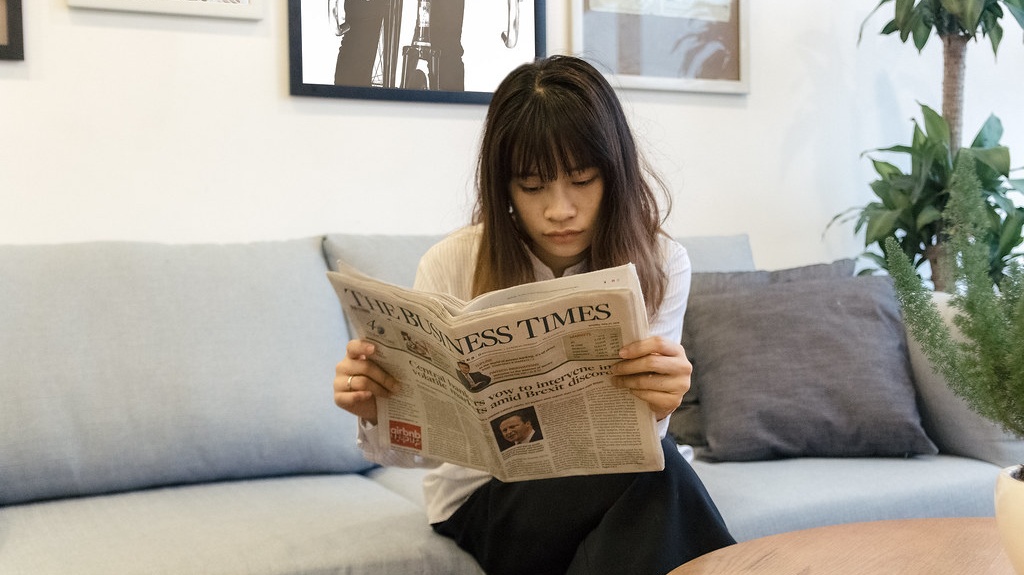By Sian Hopkins | Comment Editor
Over the past few years, a predominant focus has been put upon women in the media, with outlets often focusing on the female form and the role it plays in a woman’s ‘success’ in current society, often disregarding their accomplishments.
This isn’t a new issue; women have been the target of objectification within the media for years. Famous moments in pop culture history include Britney Spears shaving her head, as a result of years of criticism and vile articles focusing on her appearance rather than her work.
Yet, even when women are more conservative in what they wear, like Billie Eilish making a stand against people making observations about her weight and size, it doesnÔÇÖt stop reporters and paparazzi finding ways to make misogynistic speculations.
Only a few weeks ago, photos began circulating from the Daily Mail of influencer Molly-Mae Hague in a bikini. Whilst this is not uncommon, especially for social media influencers who often post similar shots themselves to their own social media, the message behind the release of the photos was far less empowering. 
Despite the article title highlighting her body as being ÔÇÿincredibleÔÇÖ, this did not stop countless trolls in the comment section pointing out MollyÔÇÖs cellulite, telling her to ÔÇÿgo on a dietÔÇÖ and scrutinising every part of her appearance.
Although the article title was written in a positive tone, there is a valid argument to suggest that, by using her body for the main focus of the article, the article gives permission for others to believe that they deserve an opinion on whether she reaches their personal ideals of ‘incredible’.┬á
No one should believe they are allowed to have the superiority to comment or hold an opinion on anyoneÔÇÖs body or attractiveness, and this stands for both men and women. Unfortunately, women are taught to be the subject of continuous objectification from an early age, fed through an often male-fueled desire to fit into societyÔÇÖs current idea of ÔÇÿperfection.ÔÇÖ┬á
Within the Daily Mail article, there is no mention of her success since being a runner up on Love Island, and alternatively, no similar article has been published commenting on the physique of her boyfriend Tommy Fury. 
These articles are not uncommon for most newspapers and media outlets, as demonstrated by the countless news stories dedicated to AdeleÔÇÖs weight loss and ÔÇÿstunning transformationÔÇÖ by her loss of seven stones earlier in the year.
Although the focus of these stories could have highlighted an improvement in the singerÔÇÖs health or no change to her already amazing talent and personality, almost all articles commented on how amazing she now looked and even the revenge she had taken on her ex-husband by losing so much weight.
There is a lot of current research surrounding social media and the rise of photo-editing and its impact on the mental health of young women.
However, there seems to be a blatant disregard for the objectification and current beauty standards of women, presented by the global media. All young people have to do is click on their explore page on Snapchat, or highlights on Facebook to find widgets from newspapers like The Daily Mail or The Sun, with titles explaining how Demi Moore ÔÇ£bears allÔÇØ in a bikini.
The more women I spoke to, the more I learned that some women mute or hide these particular stories from their social media because of their misogynistic tone. This is arguably one of the only ways women are able to take back some control over how they wish to see their own bodies, as by muting these sorts of articles, they acknowledge they cannot be defined by how the media wishes to present women. 
Upon trying to gain more insight, I found it extremely difficult to find any articles or media outlets that acknowledged the discrepancy between how women are presented by papers like The Sun, in comparison to men.
Instead, I found a paper published by United Nations Women that explained the underrepresentation of women within the media. According to their report, based on the largest portrayal and participation of women in news media, only 24% of persons who are heard, seen or read about in the paper, television, and radio news are women.
This is across a span of 20 years and includes around 114 countries within this data. This continues with only 37% of stories being reported by women, which has seen no change in nearly a decade. 
One of the biggest issues raised by this report is that with so few female reporters and journalists, there is a continued presence of sexism and misogynistic standards allowed within the media and news stories.
Amongst other factors, the underrepresentation of women in the media encourages stereotypes and plays a significant part in encouraging attitudes of disrespect towards women. It does this in teaching girls that they play a secondary role to men and that their success is determined by their ability to fit into particular standards, fuelled by misogyny and run by the patriarchal structure of today’s society. It also encourages boys from an early age that men have the superior authority to decide a womanÔÇÖs worth.
Despite the scrapping of The SunÔÇÖs page three a few years ago, there are still unmistakable correlations between certain articles published today and the sexual objectification that was encouraged by the exploitation of the female form; its continued message being that women are but there for the pleasure of men.
With the combination of porn culture, the media, therefore, demonstrates how there has been little difference, or progress, in attitudes towards women now, as there were twenty years ago.
Although change is long overdue, I sincerely hope change is on the horizon. For an equal society, we must stop an unequal representation of men and women from the media.





Add Comment